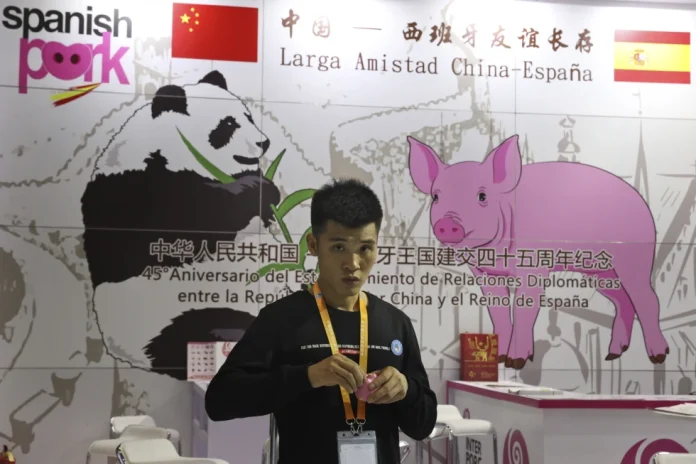The Chinese government targeted European farmers by launching an investigation into EU pork imports, AP News reported.
This came just days after the EU said it planned to impose temporary tariffs on Chinese-made electric vehicles (EVs).
However, the Commerce Department did not mention tariffs on EVs when it announced on Monday that it was launching an anti-dumping investigation into pork from Europe. However, the move is widely seen as a response to the EU’s step on electric vehicles. It also gives China a bargaining chip in any trade negotiations.
China could impose a 25% duty on imports of gasoline cars with powerful engines in the name of fighting climate change. The move would have hit Mercedes and BMW hard. By deciding not to do so, the government may, however, be recognising the German car industry’s public opposition to the EU tariffs, as well as its significant production in China.
The Chinese market is an important one for German car manufacturers. President of the German Association of the Automotive Industry (VDA), Hildegard Müller, called the EU’s 12 June tariff announcement another step away from global co-operation.
The risk of a global trade conflict is rising further as a result of this measure.
Pork import probe
The investigation into EU pork imports will cover a variety of products, including fresh and frozen pork meat, intestines, and other internal organs. According to the announcement, the enquiry could take one year, with a possible six-month extension.
Meanwhile, Olof Gill, a spokesperson on trade for the European Commission, stated that EU agricultural subsidies “are strictly in line with our WTO obligations.” However, Chinese officials claimed that the EU’s investigation into subsidies for EV production in China was “typical protectionist behaviour” that disregarded WTO rules.
The EU plans to impose preliminary tariffs of between 17.4% and 38.1% on electric vehicles from China for four months from 4 July. The duties will apply to cars exported to Europe by both Chinese and foreign brands, including Tesla.
Pork exports from the EU to China peaked in 2020 at 7.4 billion euros ($7.9 billion). However, shipments have fallen since then, reaching 2.5 billion euros ($2.6 billion) last year. Nearly half of that amount came from Spain, Spanish Economy Minister Carlos Cuerpo stated.
We must avoid an escalation of trade countermeasures.
Meanwhile, Spanish pork producers’ association Interporc said it would “offer complete co-operation with Chinese authorities” and provide them with all the necessary documents.
